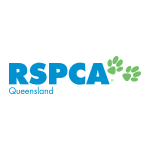Most of the time, members of the community may be disgruntled and even angry at penalties that are handed down to animal cruelty offenders. We are glad that passionate animal lovers take these offences seriously, and demand more. There is however a limit to what the RSPCA can do when prosecuting offenders.
RSPCA Qld Prosecutions Officer Tracey Jackson explains what a prohibition order means for an offender.
“Prohibition orders are not a punishment. They are a legislative tool to help us protect animals. There are some offenders who should not own animals for a while, and some who should not ever own animals. In those cases we seek orders prohibiting people from having animals at all, or for long periods of time, including lifetime.
“But it’s up to the court what orders are made, and whether or not a prohibition order is made at all. Courts will not allow us to make lifetime prohibition orders against every offender, or unjust prohibition orders against any offender.”
There is also a method to what penalties can be sought, without it having a detrimental outcome to current and future cases which Tracey explains below.
“As prosecutors, our duty is to be fair and to ensure penalties are just and lawful. If we are too unreasonable, courts will not make the orders we seek, and if we continue being unreasonable we could risk losing our power to prosecute.”
Sometimes education is the answer to change future patterns of animal welfare concerns.
“In many cases, the best way to protect animals, is to use prohibition orders to limit or regulate animals owned by offenders. Many times people offend due to their current circumstances, and they simply need a break from having animals, or from having so many animals. Other times, people are actually good animal owners with the best of intentions, but they simply have too many animals. So teaching people how to properly care for animals, under the supervision of a prohibition order, is better than them having no animals at all, and learning nothing about how to properly care for animals. In many cases also, there are children in families who have already seen the ‘wrong’ way to care for animals, and the best legacy we can leave them is to help their parents show them the ‘right’ way to care for animals.
“Sometimes, particularly with hoarders, including some breeders, offending happens only because they have too many animals. They are actually very good at caring for one or two animals, but unsurprisingly, cannot cope with too many. In these cases, it can be helpful for the court to place these people on probation, where they receive support, supervision and counselling or treatment as needed, in conjunction with a prohibition order than ensures they limit their animals. The probation also has the effect of giving the offender some extra incentive to comply with the prohibition order, because a contravention of a prohibition order will also be a breach of their probation, and could lead to further prosecution, penalty and re-sentencing. So the simultaneous operation of these two orders is effective in re-educating people about how to care for pets, particularly people who have hoarding tendencies, including those obsessed with breeding too many animals.”
If education doesn’t work and re-offending occurs, it’s back to the courts.
“Ultimately, we consider each case individually, and put in place the appropriate management to best ensure the protection of animals now, and in the future. If at any time the offender reverts back to their old ways of offending, we always have the option of going back to court to obtain a longer or different prohibition order. Then, after showing the court the repeat offending behaviour, it can be appropriate for us to seek lifetime or longer, more restrictive, prohibition orders.”
If you see animal cruelty or welfare concerns, report it online or by calling our 24/7 Animal Emergency Hotline, 1300 ANIMAL (1300 264 625).
To read more about how RSPCA Qld cruelty complaints are processed, read more here.
RSPCA Qld Prosecutions Officer Tracey Jackson explains what a prohibition order means for an offender.
“Prohibition orders are not a punishment. They are a legislative tool to help us protect animals. There are some offenders who should not own animals for a while, and some who should not ever own animals. In those cases we seek orders prohibiting people from having animals at all, or for long periods of time, including lifetime.
“But it’s up to the court what orders are made, and whether or not a prohibition order is made at all. Courts will not allow us to make lifetime prohibition orders against every offender, or unjust prohibition orders against any offender.”
There is also a method to what penalties can be sought, without it having a detrimental outcome to current and future cases which Tracey explains below.
“As prosecutors, our duty is to be fair and to ensure penalties are just and lawful. If we are too unreasonable, courts will not make the orders we seek, and if we continue being unreasonable we could risk losing our power to prosecute.”
Sometimes education is the answer to change future patterns of animal welfare concerns.
“In many cases, the best way to protect animals, is to use prohibition orders to limit or regulate animals owned by offenders. Many times people offend due to their current circumstances, and they simply need a break from having animals, or from having so many animals. Other times, people are actually good animal owners with the best of intentions, but they simply have too many animals. So teaching people how to properly care for animals, under the supervision of a prohibition order, is better than them having no animals at all, and learning nothing about how to properly care for animals. In many cases also, there are children in families who have already seen the ‘wrong’ way to care for animals, and the best legacy we can leave them is to help their parents show them the ‘right’ way to care for animals.
“Sometimes, particularly with hoarders, including some breeders, offending happens only because they have too many animals. They are actually very good at caring for one or two animals, but unsurprisingly, cannot cope with too many. In these cases, it can be helpful for the court to place these people on probation, where they receive support, supervision and counselling or treatment as needed, in conjunction with a prohibition order than ensures they limit their animals. The probation also has the effect of giving the offender some extra incentive to comply with the prohibition order, because a contravention of a prohibition order will also be a breach of their probation, and could lead to further prosecution, penalty and re-sentencing. So the simultaneous operation of these two orders is effective in re-educating people about how to care for pets, particularly people who have hoarding tendencies, including those obsessed with breeding too many animals.”
If education doesn’t work and re-offending occurs, it’s back to the courts.
“Ultimately, we consider each case individually, and put in place the appropriate management to best ensure the protection of animals now, and in the future. If at any time the offender reverts back to their old ways of offending, we always have the option of going back to court to obtain a longer or different prohibition order. Then, after showing the court the repeat offending behaviour, it can be appropriate for us to seek lifetime or longer, more restrictive, prohibition orders.”
If you see animal cruelty or welfare concerns, report it online or by calling our 24/7 Animal Emergency Hotline, 1300 ANIMAL (1300 264 625).
To read more about how RSPCA Qld cruelty complaints are processed, read more here.



